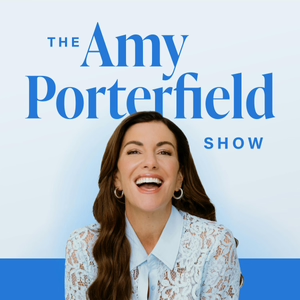
Business Weekly
01/02/21 • 49 min
2 Listeners
The UK has given the green light to the Oxford AstraZeneca Covid19 vaccine. It’s cheaper and easier to store than some of the alternatives - and the hope is that will make it easier to distribute globally. However, there are worries that production capacity and an unwillingness to share intellectual data might mean the poorest in the world won’t get the immunisation. We speak to Anna Marriott of Oxfam. Also on the show we’ll be mulling over the Brexit deal. We get the view from businesses both sides of the Channel about what the future will bring now the UK and EU have a new trade relationship. We also hear from former EU trade commissioner Cecilia Malmstrom who tells us what effect the divorce will have on the rest of the union. As the rest of the world continues to struggle with Covid 19, China is getting back to normal. We hear from Wuhan and Shanghai. Plus, food businesses discuss how they’ve adapted to survive during the pandemic. Business Weekly is presented by Lucy Burton and produced by Clare Williamson. (Image:University of Oxford researcher in a laboratory at the Jenner Institute, working on the coronavirus vaccine. Image credit: John Cairns/University of Oxford/PA Wire)
The UK has given the green light to the Oxford AstraZeneca Covid19 vaccine. It’s cheaper and easier to store than some of the alternatives - and the hope is that will make it easier to distribute globally. However, there are worries that production capacity and an unwillingness to share intellectual data might mean the poorest in the world won’t get the immunisation. We speak to Anna Marriott of Oxfam. Also on the show we’ll be mulling over the Brexit deal. We get the view from businesses both sides of the Channel about what the future will bring now the UK and EU have a new trade relationship. We also hear from former EU trade commissioner Cecilia Malmstrom who tells us what effect the divorce will have on the rest of the union. As the rest of the world continues to struggle with Covid 19, China is getting back to normal. We hear from Wuhan and Shanghai. Plus, food businesses discuss how they’ve adapted to survive during the pandemic. Business Weekly is presented by Lucy Burton and produced by Clare Williamson. (Image:University of Oxford researcher in a laboratory at the Jenner Institute, working on the coronavirus vaccine. Image credit: John Cairns/University of Oxford/PA Wire)
Previous Episode

UK completes separation from European Union
A new era has begun for the United Kingdom after it completed its formal separation from the European Union. The UK stopped following EU rules, as replacement arrangements for travel, trade, immigration and security co-operation came into force. On today's programme, we'll hear how we got to this point with Marie Keyworth, and then Vivienne Nunis will tell us what's happening today. Then, Dr Anna Jerzewska, Director of the trade consultancy Trade and Borders and Allie Renison with the Institute of Directors will discuss the UK's trade opportunities in the future.
Producer: Frey Lindsay.
(Picture credit: Reuters.)
Next Episode

Thinking global, acting local
Lessons in rethinking the climate emergency from Sierra Leone and the US. We hear from mayor of Freetown Yvonne Aki-Sawyerr on her plans to plant a million trees, and make climate change relevant to the citizens of the rapidly urbanising capital city. Harvard’s Rebecca Henderson argues that capitalism can provide at least part of the solution, and companies need to price in climate damage, making them financially accountable.
(Image credit: Getty Images)
If you like this episode you’ll love
Episode Comments
Generate a badge
Get a badge for your website that links back to this episode
<a href="https://goodpods.com/podcasts/business-daily-37342/business-weekly-7087868"> <img src="https://storage.googleapis.com/goodpods-images-bucket/badges/generic-badge-1.svg" alt="listen to business weekly on goodpods" style="width: 225px" /> </a>
Copy




